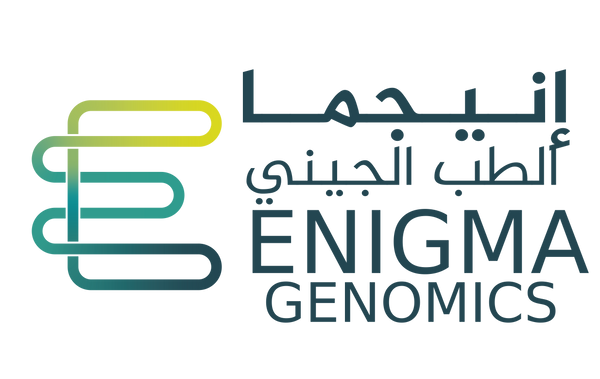
Is Autism genetic?
The term autism spectrum disorder refers to a group of neurodevelopmental disorders that affect social skills, learning, and behaviour. The percentage of people with autism worldwide has increased in the last 10 years, from 0.062% to 1% in 2023. The Centers for Disease Control and Prevention (CDC) reported that the percentage of children diagnosed with autism between the ages of 3-17 years was only 17% between 2009 and 2017, indicating that the diagnosis of autism still begins at the age of 3-4 years.
But what exactly causes autism? Is it genetic or environmental? And is it curable?
In this article, we will discuss the causes of autism as well as the role of genetic testing in changing autism diagnosis and treatment methods.
What is Autism spectrum disorder?
Autism is a group of neurodevelopmental disorders that affect communication skills, interaction with others, learning, and behaviour. Males are 4 times more likely to develop autism than females. Because the severity of autism challenges varies from person to person, so does the appropriate rehabilitative treatment method.
Types of Autism
As previously stated, autism spectrum disorder refers to a group of disorders with varying degrees of severity and difficulties, such as:
Asperger's syndrome
It is a medium-severity form of autism in which people have a high level of intelligence but are unable to communicate with others.
Pervasive developmental disorders
It is considered more severe than Asperger's syndrome and typically manifests as delayed speech, inability to interact with others by the age 3, and repetitive behaviours and movements.
The Heller syndrome
It is a rare condition that usually manifests itself in the form of delayed speech and movement, as well as an inability to interact with others, in children under the age 3.
Some medical professionals classified Rett syndrome as an autistic disorder as well, but it was recently proven that it is caused by a genetic mutation that affects the nerves of the brain and movement and affects girls more than boys, as opposed to autism, which affects boys four times more than girls.
Autism symptoms
Autism symptoms typically appear between the ages of 12-24 months, though some children may delay the onset of autism symptoms until the ages of 2-3 years.
Autism symptoms include:
1. By the age of 9 months, he can't socialise, such as making eye contact and being unable to express his desires and feelings or respond to his name.
2. The repetition of actions and phrases.
3. Arranging objects and toys in a specific order and becoming irritated when their arrangement is altered.
4. Making unusual movements, such as spinning and waving his hands.
5. Sluggish speech and movement.
6. Delayed cognitive or learning skills.
Autism may be associated with the following disorders:
1. Attention Deficit Hyperactivity Disorder.
2. Epilepsy
3. Greater fear and anxiety than usual, or a lack of fear.
4. Mood swings.
5. Dyslexia.
Is Autism a hereditary disorder?
There are numerous causes of autism, including environmental and genetic factors. Among the most important environmental factors that increase the likelihood of developing autism are:
1. Pregnancy infection.
2. Medication use during pregnancy which increases the likelihood of having an autistic child.
3. Childbearing at a mature age.
In the following cases, genetic factors increase the chances of having an autistic child by 40-80%:
1. Having relatives with autism or delayed cognitive or learning skills.
2. Having a genetic syndrome like Down syndrome, fragile X syndrome, or tuberous sclerosis.
Autism treatment
There is no cure for autism, but there are rehabilitation therapeutic methods to help the child integrate into society, such as behavioural therapy, speech therapy, and physical therapy for movement problems. The appropriate rehabilitative treatment method selected by the specialist is determined by the child's level of autism.
The significance of genetic screening in the early detection of autism
Autism, developmental delay, learning difficulties, and other genetic diseases with similar symptoms can take years to diagnose, causing the condition to deteriorate. If the child exhibits early signs of autism, the pediatrician may recommend genetic counselling to recommend the appropriate genetic examination and accurately identify the genetic changes causing autism, as well as to recommend appropriate rehabilitative treatment measures for the child.
Among the most popular genetic tests for autism patients are:
Chromosomal Microarray
The Chromosomal Microarray determines the location of defects in the parts of the chromosomes that cause learning disabilities, Down syndrome, and other disorders. In 10-20% of cases, Chromosomal Microarray (CMA) has been effective in identifying genetic factors causing autism.
Whole Exome Sequencing
Whole Exome sequencing is more comprehensive and faster than Chromosomal Microarray, so The American College of Medical Genetics and Genomics recommends Whole Exome sequencing or Whole Genome sequencing to diagnose developmental delays, learning disabilities, and other neurodevelopmental disorders like autism at the age of one year.
Whole Genome Sequencing
The most comprehensive genetic test for autism and over 7,500 genetic conditions, genome testing covers the entire Human genome to detect all possible genetic pathogens.
Genetic testing and genetic counselling also assist parents who have an autistic child in determining the likelihood of having another child with autism and making recommendations.
in conclusion, the earlier parents begin genetic screening for their children suspected of having autism, the more likely it is that appropriate solutions to autism will be available. The more we consider the importance of genetic testing prior to marriage and pregnancy, the better our chances of protecting our children from genetic diseases and their negative consequences, allowing them to live a healthy life.
